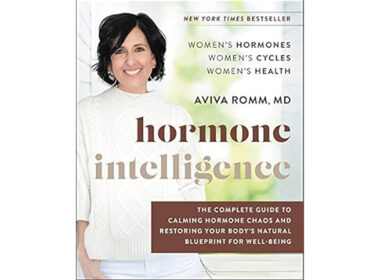In my work as a psychotherapist, one of the first things I try to address with my clients is identifying any areas of their life that might be exacerbating whatever mental health issue they are experiencing. I ask them about their sleep habits, their eating habits, the health of their significant relationships, their exercise habits, significant stressors, and any medication they are prescribed. All of these facets of their life might be worsening their symptoms. For example, not getting enough quality sleep is linked to an increased risk of developing depression. One study found that individuals who struggle with insomnia are ten times more likely to develop depression and seventeen times more likely to develop anxiety.
What a person eats (or doesn’t) can also affect their mental health status. For example, an improper diet can contribute to the fatigue someone is already experiencing as a symptom of their depression. The same goes for exercise. Exercise can actually improve a person’s mood and serve as a protective barrier against some of the symptoms of depression and anxiety.
While it may not be surprising to you that many of these factors can worsen or improve a person’s symptoms of depression, one factor that is often ignored but is actually very important is whether or not that person is taking birth control. It isn’t talked about enough in the field of mental health or the medical world, but it is very important to consider because there are some studies that have found a link between depression and some forms of birth control.
For example, a 2016 study that was conducted in Denmark, looked at over one million women between the ages of 15-34, and clearly found that women who used birth control were at an increased risk for being diagnosed with depression and prescribed an antidepressant. Note that the study excluded women who had a prior history of depression. Adolescent women were at the highest risk for developing depression following hormonal contraception use. The researchers note that prior studies have identified that this increased risk may be due to the fact that changes in estrogen levels can trigger depressive episodes for some women. Additionally, a Harvard Health article noted that, while the IUD is often described as having only a local effect without impacting the rest of the body, it was associated with an increased risk for depression across all age groups in the Danish study.
In another study published in 2019 in the Journal of Child Psychology and Psychiatry, researchers found that adolescent women who used birth control were 1.7 to 3 times more likely to develop clinical levels of depression in adulthood. One of the study’s authors explained that hormones changes during adolescence, when the brain is still developing, can impact the way the brain develops.
It is because of studies like these that it is important to make sure the link between birth control and depression is being discussed in mental health and medical circles. This lesser-known but very real risk is something that women considering taking birth control or women who are at risk for developing depression should know.
But not enough people are talking about it, and here are some reasons why.
In a new book by Dr. Sarah E. Hill titled, How the Pill Changes Everything: Your Brain on Birth Control, Hill not only explores how hormonal birth control impacts women’s moods, perceptions, and stress response by the way these drugs change the woman’s hormone balance and influence brain receptors, but also why we are less likely to look at the Pill’s side effects such as depression critically. During an interview with The Guardian, Hill stated that we aren’t motivated to look at the Pill too closely because people view “the pill is so useful, no one is motivated to examine it too critically.” Furthermore, pharmaceutical companies have billions of dollars to lose globally (the global hormonal contraceptive market was worth $12.85 billion in 2021) if more and more women question the usefulness of hormonal contraceptives and seek alternatives.
More than ever, women are looking for these alternatives to birth control due to these links between birth control and side effects such as depression, however, doctors still default to prescribing hormonal contraception, and alternative such as Fertility Awareness Based Methods (FABMs) of natural family planning often go unmentioned. Women go most of their lives only informed of hormonal contraceptives or condoms when it comes to family planning options, and when they’re given the information, it’s often inaccurate or misleading. Imagine how many women would be served if they knew how FABMs could help them regain control of their bodies without the use of artificial hormones and the unsavory side effects of hormonal contraceptives, while also positively impacting their health, fertility, and even romantic relationships.
If you are someone who is either at risk for developing depression or who is struggling with depression, there are steps you can take to help you decide whether getting off birth control for the sake of your mental health is for you. You might want to consider scheduling a consultation with a NaPro-certified provider or FABM provider who can help you make an effective plan for discontinuing your use of birth control and transitioning to a FABM. Additionally, if you are coping with a mental health issue such as depression or anxiety, it can be very helpful to seek out therapy with a qualified mental health professional. You don’t have to choose between taking charge of your fertility or taking care of your mental health. FABMs and therapy can empower you to do both.







